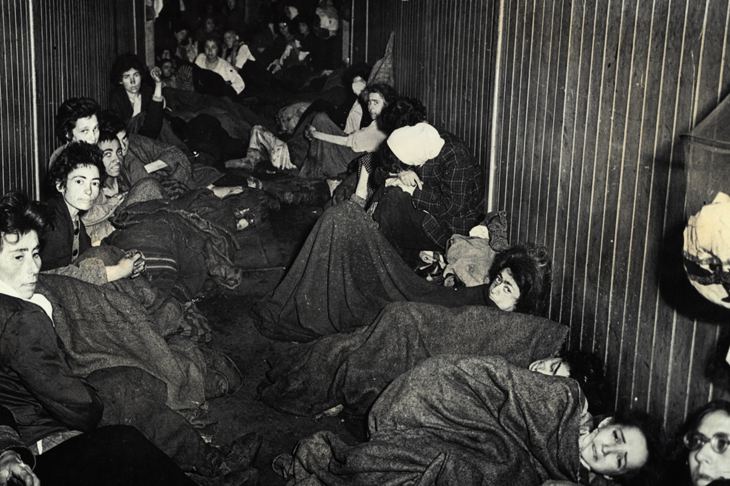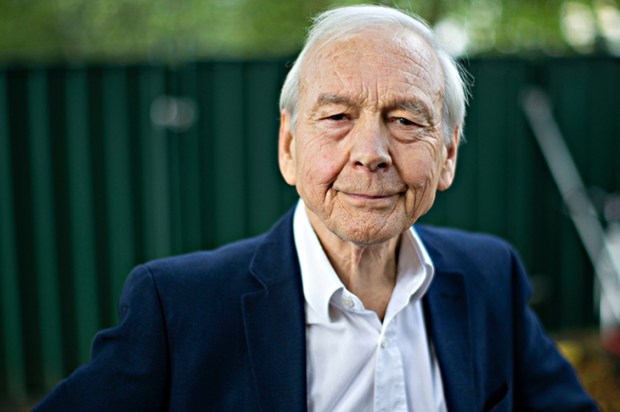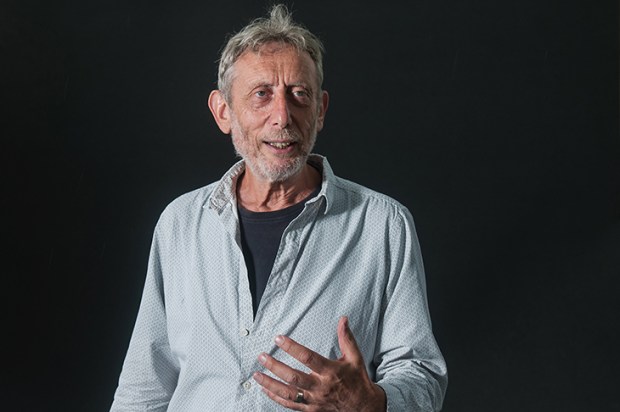The most inspiring voice on radio this week belongs to Hetty Werkendam, or rather to her 15-year-old self as she talked to the BBC correspondent Patrick Gordon Walker in April 1945. He was with the British soldiers who entered the Bergen-Belsen concentration camp and witnessed the horrors of that scene: dead bodies in piles with no one to bury them, living people lying beneath them too weak to move, or using them as pillows. Hetty was one of several children interviewed by Gordon Walker, her voice so strong and resolute and light in spirit, in spite of all that she had seen and experienced. Talking now, aged 88, to Mike Lanchin for Children of Belsen on the World Service, she insists, ‘It is not a sad story I am telling you. It’s a story of experience, and plenty of hope and courage.’
Hetty was Dutch and Jewish and aged 11 when the Nazis marched into Amsterdam. She was imprisoned in Bergen-Belsen with her family but was soon separated from her mother and father and taken to a special unit where ‘orphaned’ children were looked after by foster mothers (the Nazis hoped to use them in an exchange programme for German PoWs). She was in bed when the British arrived at 3.30 on a Sunday afternoon, recovering from typhus. Her first question for Gordon Walker was how she could find out where her parents were.
We also heard from Julius who was just three when the British arrived and has no memories from that time. He was adopted afterwards by a couple in Finland and until recently never looked back on his childhood. But in 2010 he went back with Hetty to Bergen-Belsen. The huts, fences and guardrooms are all gone, and it’s now a peaceful rural scene, surrounded by trees and punctuated by memorials to the 50,000 prisoners who lost their lives. Julius remembered nothing of the place, but he could feel the pain, a sense of what had happened there. ‘I’ve always felt different, as a stranger,’ he says. ‘And the first time that I felt at home was coming to Bergen-Belsen and being among all the other survivors.’
Another extraordinarily direct and honest voice could be heard later in the week on the World Service when Christopher de Bellaigue talked with his aunt Diana, now aged 94 and living alone, as she has always done, on Vancouver Island. In A Life Alone (produced by Adele Armstrong), Diana told us without a trace of self-pity how she had been abandoned by her parents when she was just a one-month-old baby and left behind in London with a nanny when they emigrated to Canada. She didn’t see them again until she was four. Even then, ‘No one sat down and talked to me. No one kissed or hugged me.’
She reminds de Bellaigue of Kipling’s cat who walks by himself because she has always spent her life in solitude, unwilling and unable to become attached to anyone. Yet when her sister, de Bellaigue’s mother, took her own life when he was still a teenager, she was the only person he could talk to, who truly understood his sense of desolation and abandonment. ‘For someone without friends, she has an amazing capacity for friendship,’ he says.
Of course, you can be alone while in a crowded room. It’s a state of mind as well as a condition of life. All this week on Radio 4, there have been programmes highlighting the BBC’s Loneliness Experiment (in conjunction with Manchester University and the Wellcome Collection), which has received more than 55,000 responses from around the world. What does loneliness mean to people, how does it affect them? How can the pain it engenders be healed? Esther Wilson’s drama Me Myself I (directed by Pauline Harris) takes three generations in a single family and shows how those feelings of alienation, of being shut off in a place where no one can reach you, can be the same whatever your age. Esme is struggling at school without friends and feeling the pressure of not having enough likes on her social media page; her mother Sarah has lost touch with her marriage and talks about ‘walking around with a cry in your throat all the time and a hollow feeling eating away at you’; while her grandmother has had to move into a care home with all the loss of identity, confidence and self-belief that can entail.
Wilson captures Esme’s defiance: ‘You’d expect those closest to see, to know, but they don’t. They never know.’ Sarah, meanwhile, epitomises the despair of a woman who can’t understand why she is so filled with sadness. Why can’t she talk to anyone about it? ‘I feel like I’m disappearing,’ she says. ‘I don’t know who I am…’ Her mother-in-law Pat in the care home is surrounded by others like her yet she feels more alone than she has ever felt in her life. No longer being in her own home has left her feeling as if she is also cut off from herself, from who she is. ‘That’s what scares me.’ Siobhan Finneran as Sarah excels, and the writing is spot-on.
Got something to add? Join the discussion and comment below.
Get 10 issues for just $10
Subscribe to The Spectator Australia today for the next 10 magazine issues, plus full online access, for just $10.
You might disagree with half of it, but you’ll enjoy reading all of it. Try your first month for free, then just $2 a week for the remainder of your first year.














Comments
Don't miss out
Join the conversation with other Spectator Australia readers. Subscribe to leave a comment.
SUBSCRIBEAlready a subscriber? Log in